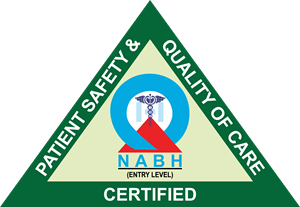Nephrology - Chronic Kidney Disease
Chronic Kidney Disease
Chronic kidney disease means you have a condition that damages your kidneys. This decreases your kidneys ability to keep you healthy by not doing the job properly. The two main causes of chronic kidney disease are diabetes and high blood pressure. Diabetes occurs when your blood sugar is too high, causing damage to many organs in your body, including the kidneys and heart as well as blood vessels, eyes and nerves. High blood pressure or hypertension occurs when the pressure of your blood against the walls of your blood vessels increases. If uncontrolled or poorly controlled high blood pressure can be a leading cause of chronic kidney disease, heart attacks and strokes. Chronic kidney disease can also cause high blood pressure. Many other conditions can harm the kidneys. These include:
Glomerulonephritis a disease that causes inflammation iin the kidneys
Inherited diseases like polycystic kidney disease which causes many cysts to form in the kidneys.
If chronic kidney disease gets worse, waste products and fluid may build to high levels in your blood and make you feel sick. You may get other problems like high blood pressure, anemia, weak bones, poor nutritional health and nerve damage. Anemia is a short supply of red blood cells in the body, which can make you feel tired and have little energy. Chronic kidney disease also increases your risk of having heart and blood vessel disease.
Chronic kidney disease may progress slowly over a long time. In fact many people don’t even know they have kidney disease until it is severe. If it is found and treated early, chronic kidney disease may often be slowed down or stopped. It it keeps getting worse, however chronic kidney disease may lead to kidney failure. This means your kidneys no longer work well enough to maintain life and you need a treatment like dialysis or a kidney transplant.
Are you at increased risk for chronic kidney Disease?
Your doctor will investigate if you have any risk factors for chronic kidney disease.
These include:
- Diabetes
- High blood pressure
- Family history of chronic kidney disease
- Old age
What should I do?
You should visit your doctor or clinic and get tested. Your checkup should include:
Checking your blood pressure
Having a simple test for protein in your urine. Protein is an important building block in your body. Any filtered protein is normally reabsorbed and kept in your body. When your kidneys are damaged, however protein leaks into your urine. There are different tests to find protein in your urine. If you have two positive tests over several weeks you are said to have persistent protein in your urine. This is a sign of chronic kidney disease.
Having a simple blood test for creatinine, a waste product that comes from nuscle activity. Your kidneys normally remove creatining from your blood. When your kidneys are damaged, however your blood creatinine and build to a high level. The results of your blood creatinine test should be used to estimate your glomerular filtration rate or GFR. Your GFR tells how much kidney function you have.
Web Search

